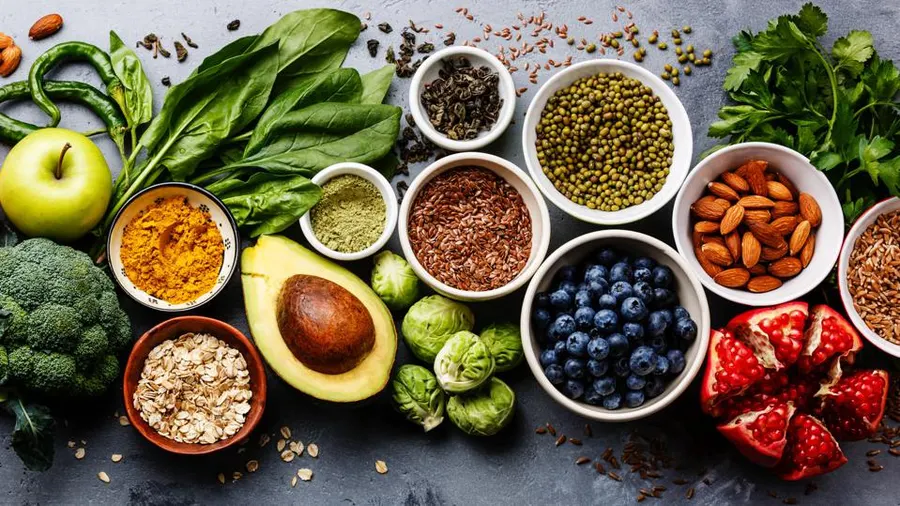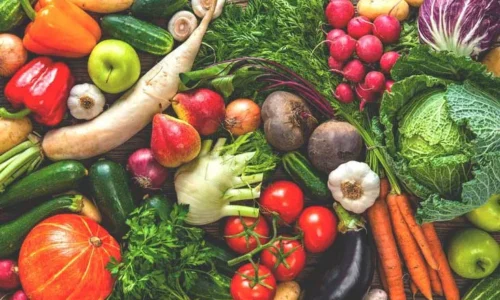- Judith Akatugba
- 0 Comments
- 655 Views
You might be tempted to decrease calories if you’re attempting to lose weight, but doing so could be harmful to your health. Less than 1,000 calories a day, according to research, seldom provides your body with the balanced nourishment it requires and can result in vitamin and mineral shortages that are linked to major health problems.
Furthermore, when you consume much fewer calories than you require, your body turns to fuel from the breakdown of its own muscle and organ tissues. Additionally, your metabolic rate will slow down if you have less lean tissue mass, which is not ideal for losing weight.
Read Also: Dry Skin: The Perfect Skincare Regimen
Jamie Feit, a registered dietitian nutritionist and the creator of Jamie Feit Nutrition in White Plains, New York, advises that feeding your body healthier meals is a more successful weight management technique than limiting your calorie intake. Experts have determined which foods are optimal for promoting a healthy and long-term weight loss program.
The Part Food Plays in Losing Weight
Matthew Olesiak, M.D., chief medical director of Bellevue, Washington-based SANESolution, a health technology firm, claims that hormones play a major role in weight control. According to him, “hormones send signals to the brain that influence our body weight, hunger, and cravings.” How the following foods impact your hunger hormones:
Protein gives you a rapid and sustained sense of fullness. According to Dr. Olesiak, it also lessens the hormone ghrelin secreted after meals, which in turn lessens sensations of hunger.
According to him, “lean muscle mass and protein also require more energy to digest, both of which help boost metabolism.”
According to Dr. Olesiak, dietary fiber assures a steady rise in blood glucose levels and slows down digestion, which in turn causes a delayed release of the hormone insulin, which is responsible for storing fat.
According to him, “different satiety hormones (like ghrelin) are released as fiber moves through the digestive system, sending signals to the brain to reduce hunger and regulate food intake.”
According to Kara Landau, a registered dietitian, gut health specialist, and the creator of the Brooklyn, New York snack company Uplift Food, this means you’ll feel filled for longer, which can help you avoid overeating and consume less calories overall. She continues, “Prebiotic soluble fiber also feeds the good bacteria that reside in your large intestine, which enhances gut health.”
Dr. Olesiak claims that because ultra-processed foods are poor in fiber and minerals, they digest more quickly. Because of this, consuming them (think candy bars, potato chips, and toasters) quickly raises blood sugar levels, which in turn induces a large release of insulin, according to him. The majority of those calories go to your fat cells since insulin has to swiftly remove glucose from your bloodstream, he says.
“Ideally, the next time you need energy, you’ll use these calories that have been stored.” But if you consistently consume highly processed meals, you will always be adding fat to your body rather than taking it out, claims Dr. Olesiak.
How to Reduce Weight Continually and Safely
According to Dr. Olesiak, severely calorie-restricting is not only not necessary but also not recommended. Rather, eating full, unprocessed, high-quality foods is the healthiest and most sustainable strategy to reduce weight. “These foods naturally raise your metabolism, reduce hunger, and encourage burning of fat,” he says.
Feit advises avoiding processed foods, fried foods, and refined sugars as much as possible. You should also be mindful of portion sizes. “The plate method is a great strategy; half of your plate should be fruits and vegetables, 25% should be lean protein, and 25% should be fiber-filled carbohydrates,” she advises.
According to Landau, eating a range of clear, unadulterated foods can also help your gut health. “Having a healthy gut can help reduce inflammation and boost immunity, which will improve your physical and mental well-being and help you stay on track to reach your weight loss goals. It also strengthens the insulin response, which reduces fat stored around the midsection,” she continues.
16 Foods Experts Suggest to Help With Weight Loss
The following foods have several health benefits that can help you lose weight and improve your general health.
1. Lean Protein
According to Feit, lean protein sources like turkey, chicken, and grass-fed lean beef help control blood sugar, reduce cravings, and keep you satisfied. Legumes, beans, and lentils are examples of plant-based proteins that offer similar health advantages and increase satiety due to their high fiber content.
2. Eggs
Except for vitamin C, eggs are a good source of practically all the vital vitamins and minerals, including potassium, calcium, and phosphorus. According to Feit, eggs are not only a source of complete protein but can also be customized to suit a variety of palates.
3. Vegetables
According to Feit, vegetables of all kinds can help with weight loss. Broccoli, cauliflower, Brussels sprouts, and cabbage are examples of cruciferous vegetables that are strong in vitamins and fiber and can help ease digestive problems. On the other hand, dark green leafy vegetables are high in fiber, vitamins, and minerals as well as protein. Furthermore, low-calorie snack options like celery and jicama are excellent choices for crunchy vegetables.
4. Avocados
Feit claims that avocados are greatly underestimated. The fruit is an excellent food for reducing hunger because it is strong in fiber and a good source of healthful fat. Avocados are high in calories due to their fat content, therefore it’s crucial to watch portion sizes.
5. Fruits
According to Feit, apples are rich in antioxidants and fiber. The fruit has vitamin C, polyphenols, and anti-inflammatory qualities.
6. Berries
According to Feit, berries are rich in fiber, antioxidants, and vitamin C—all of which your body needs to operate at its best.
7. Seeds and Nuts
According to Feit, nuts and seeds offer distinct health advantages. All nuts reduce appetite and are a fantastic source of fiber, protein, and healthy fat. In the meanwhile, seeds are an excellent source of healthful fat and minerals. Here, too, watch your portion sizes. A quarter cup is the amount of nuts and seeds in one serving.
8. Salmon
According to Rima Kleiner, a registered dietitian nutritionist and the creator of the Greensboro, North Carolina-based wellness coaching business Smart Mouth Nutrition, salmon is rich in protein and omega-3 fatty acids. According to research, omega-3 fatty acids may contribute to a feeling of fullness in overweight or obese individuals. Additionally, according to Kleiner, fish in general may make you feel fuller and more content for longer than other proteins like eggs and meat.
9. Shrimp
According to Kleiner, shrimp increases sensations of fullness. By increasing the synthesis of cholecystokinin, or CCK, a hormone that tells your stomach when you’re full, eating shrimp seems to reduce hunger. Moreover, zinc and selenium—two essential nutrients for a healthy immune system and more energy—are found in shrimp and other shellfish.
10. Lupini Beans
According to Landau, lupini beans are rich in prebiotic fiber, which nourishes the good bacteria in your stomach. The quantity and variety of bacteria in your stomach increase when it is well-fed. According to her, having a diversified and well-populated microbiome enhances gut health, which increases insulin sensitivity in your cells and helps burn fat that has been accumulated around the waist.
11. Unripe Bananas
According to Landau, unripe bananas are one of the world’s richest sources of prebiotic-resistant starch. Prebiotic-resistant starch increases insulin sensitivity in your cells, which helps to reduce the accumulation of fat around your waist. When paired with protein—for example, in a smoothie with nut butter and/or protein powder—it can satisfy your hunger for several hours.
12. Uncooked Oats
According to Landau, resistant starch, or starch that resists digestion, is abundant in raw oats and is particularly beneficial for weight loss. Resistant starch breaks down during digestion to generate byproducts that may increase insulin sensitivity in your cells and assist lose belly fat that won’t go away.
13. Sauerkraut
According to Dr. Olesiak, sauerkraut, or fermented cabbage, is a food that is both probiotic and prebiotic, which means that it feeds the healthy bacteria currently present in your digestive system and introduces new beneficial bacteria. Additionally high in fiber, sauerkraut helps manage blood sugar levels and appetite, according to him.
14.Legumes
According to Landau, legumes are good for intestinal health and satiety. Their high fiber content helps you avoid overeating by making you feel filled for longer. They also contain nutrients that support the health of your gut flora.
15. Chia Seeds
According to Dr. Olesiak, chia seeds can support weight control in two ways. To start, they contain a lot of fiber, which might make you feel full and stop overeating. Second, when you consume them unsoaked, they grow in your stomach, taking up more room and acting as a natural hunger suppressor because they expand in water.
16. Water Although it isn’t a food, water is nevertheless crucial for a good weight loss plan. Make careful to stay well-hydrated since, according to Feit, “all of our body processes—metabolism is one of these processes—need water to function.”











